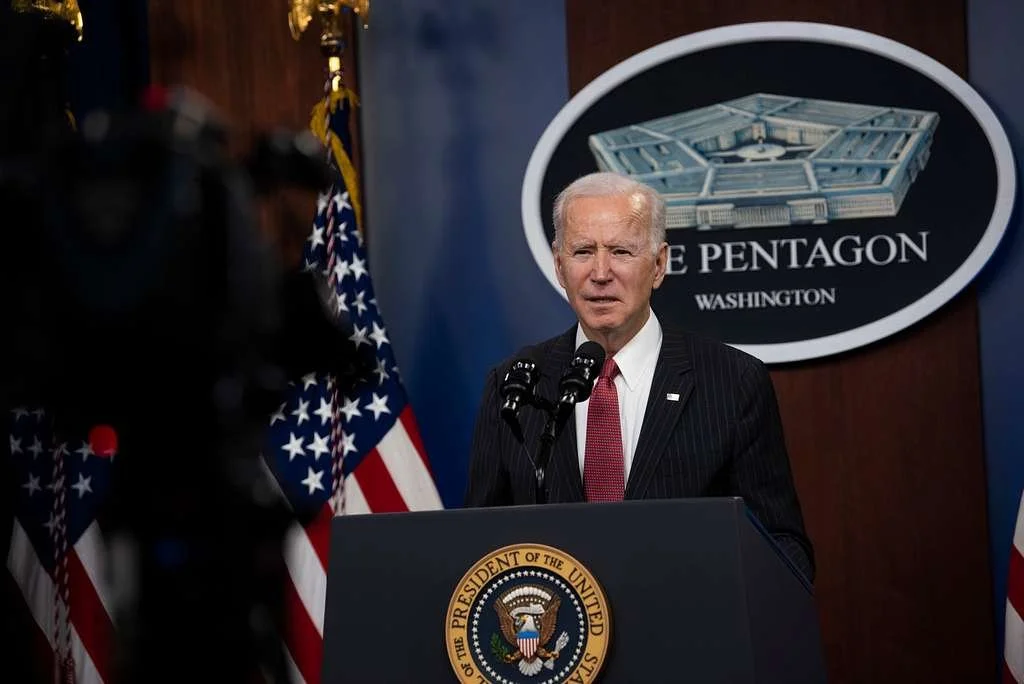Photo courtesy of Picryl
Biden said the Nov. 27 ceasefire agreement called for Israel to withdraw its forces and for Lebanon’s security forces to retake control of their territory.
By Mira Crane ’27
Global Editor
Content warning: This article discusses state-sanctioned violence and mass death.
A tenuous peace may eventually be at hand between Israel and Hezbollah. On Wednesday, Nov. 27, a ceasefire deal went into effect at 4 a.m. GMT+2, seeking to end the conflict between the two entities, NPR reported.
Israeli Prime Minister Benjamin Netanyahu endorsed the deal on the evening of Tuesday, Nov. 26, and the Lebanese government accepted it the following Wednesday morning, according to The New York Times. Residents of Lebanon who had fled their homes began returning just hours after the ceasefire took effect. The conflict has caused massive displacement and damage as well as the deaths of both Lebanese and Israeli civilians. According to NPR, the Israeli military campaign in Lebanon has killed more than 3,700 people, mostly civilians, over 14 months. Meanwhile, about 80 people in northern Israel, including soldiers and civilians, have been killed in the fighting.
According to the same NPR report, Biden explained that the agreement calls for Lebanese security forces and the Lebanese army to take control over their territory within 60 days of the ceasefire going into effect, as Israel gradually withdraws its forces. It is expected that the Lebanese military, a group separate from Hezbollah who has tried to remain uninvolved with Israel, will deploy thousands of soldiers in southern Lebanon. The implementation of the agreement will be monitored by the United States, France and other countries. Haaretz reported that the United States is supposed to take the lead in overseeing both Israel and Hezbollah’s military activities.
Hezbollah is a military and political force in Lebanon supported by Iran, NPR reported. It is considered to be a terrorist organization by the U.S., Israel and other countries. Hezbollah began launching rockets into Israel the day following the Palestinian militant group Hamas’s Oct. 7 attack on Israel. Israel responded to Hezbollah’s attacks with intensive airstrikes in Lebanon, killing Hezbollah’s longtime leader Hassan Nasrallah with an airstrike in September.
According to NPR, Israel also sent ground forces into Lebanon, with the stated intention of driving Hezbollah away from the border so that evacuees who fled rocket fire in northern Israel could return home safely. The Israeli government reported that around 60,000 residents have evacuated since October 2023, when tensions between Israel and Hezbollah flared up. According to The New York Times, Netanyahu stated that he accepted the ceasefire deal with the idea that a pause would give Israel room to “isolate Hamas” and restock its arsenals.
President Biden stated that the ceasefire “is designed to be a permanent cessation of hostilities,” NPR reported. However, civilians in both Israel and Lebanon are concerned about civilian safety and whether or not the ceasefire can last. Avigdor Lieberman, an Israeli lawmaker and opponent of Netanyahu, told NPR that “This agreement is not good because it does not require the Lebanese army and government to disarm Hezbollah.” (Editor’s note: Since the writing of this article, both Israel and Hezbollah have accused each other of violating ceasefire terms, according to NBC News. While the agreement is still in place, Al Jazeera reports that renewed violence has highlighted its fragility.)
According to Haaretz, the Israeli military’s general staff feels their military achievements over Hezbollah in the past four months will create a degree of deterrence. However, the fact that this strategy relies on strict enforcement policies risks potentially rekindling the conflict. Israel intends to use force if required to prevent Hezbollah rearmoring south of the Litani River, which flows into southern Lebanon, and the smuggling of arms into Lebanon, prohibited by the ceasefire.
At this time, Israeli forces have also been instructed to prevent Hezbollah operatives and Lebanese citizens from entering communities near the border, according to Haaretz. The Israeli military’s Home Front Command emergency directives currently remain in effect for communities in northern Israel while the military waits to gain a clearer picture of the situation.
Tara Monastesse ’25 contributed fact-checking.

